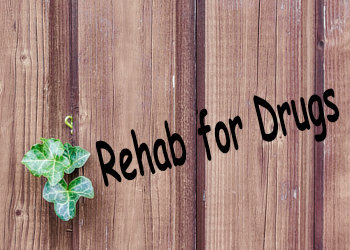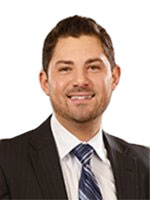Rehab for Drugs and Legal Accountability
Las Vegas, Nevada
Understanding liability claims

If you or your family member got injured in a rehab for drugs in Las Vegas or Nevada, call us at 702-432-1000 to discuss your case.
We don't charge for consultations.
What is a rehab for drugs?
Rehabilitation centers, commonly known as rehabs, are facilities designed to help patients overcome substance abuse and addiction. These facilities provide a structured and supportive environment for individuals to detoxify from drugs, undergo therapy, and learn coping mechanisms to lead a drug-free life.
Inpatient rehab for drugs
A residential rehab program for drug addiction (also known as inpatient rehab for drugs), often referred to as inpatient or residential treatment, is an intensive and structured form of treatment where individuals live within a rehab facility for a specified period. This type of program provides a highly controlled environment, offering 24/7 support, medical care, and therapeutic interventions to help individuals overcome their substance abuse issues.
Key features for inpatient rehab for drugs
The key features of a residential rehab program for drug addiction include:
• Supervision and 24/7 support: Residents receive round-the-clock supervision and support from trained staff members. This continuous care ensures immediate assistance in medical emergencies, severe withdrawal symptoms, or emotional crises.
• Medical detoxification: Residential programs often provide medical detoxification services, allowing individuals to safely and comfortably withdraw from drugs under medical supervision.
• Structured routine: Residential programs have a highly structured daily routine, including therapy sessions, group activities, individual counseling, educational sessions, and recreational activities.
• Individual and group therapy: Residents participate in individual therapy sessions with counselors or therapists to address personal issues and develop coping strategies.
• Holistic approach: Residential programs often incorporate a holistic approach to treatment, addressing not only addiction but also underlying issues such as mental health disorders, trauma, or social problems.
Residential rehab programs vary in duration, typically from a few weeks to several months.
Is the rehab for drugs effective?
Sometimes yes, and sometimes no.
Relapse rates are a common challenge for these programs.
Types of injuries in rehab for drugs
Injuries can occur in rehab facilities, although they are relatively rare.
Some common types of injuries include:
• Withdrawal-related complications: During the detoxification process, individuals may experience withdrawal symptoms that can be severe.
• Slip and fall: Patients undergoing detoxification or those receiving medications that affect their balance may be at risk of accidental falls, leading to injuries such as fractures, sprains, or bruises.
• Overdose: In some cases, individuals in rehab may attempt to use drugs while in the facility, leading to the risk of overdose.
• Medical complications: Individuals in rehab may have pre-existing medical conditions that can lead to complications if not properly managed. Examples include chronic conditions such as diabetes, hypertension, or heart problems.
• Self-harm or suicide attempts: Some individuals in rehab may struggle with mental health issues, leading to self-harm or suicide attempts.
Suing rehab for drugs
Rehab facilities should hire well-trained healthcare professionals to prevent accidents and provide appropriate care.
When rehab for drugs failed to do so, they were negligent, and they are responsible for the accident.
To sue a rehab for drugs for negligence, the attorney must prove that:
a) Negligence caused the injury or suicide,
b) Connect that negligence to the victim and
c) File a claim for monetary compensation.
If the family believes the rehab facility was negligent in providing care, call us at 702-432-1000 and ask to speak with an attorney for personal injuries. We don't charge for consultations.
What is the average settlement?
We hear this question a lot.
Personal injury settlement amounts are often kept confidential. Typically, the medical bills (past, present, and future) play a crucial role in calculating the injury compensation. If there are no medical bills, there is no insurance liability claim.
The liability insurance maximum per accident of the rehab for drugs is crucial in calculating the settlement amount.
Call us to find out what compensation to expect in your specific case. Once we have the details of your accident, we can give you more accurate advice.
If you are partially at fault
Nevada recognizes the rules of comparative negligence, which means that even if you are partly at fault, you can still be compensated for your medical bills and other damages. Accidents in rehab for drugs fall into this category.
How long does it take to settle a rehab center case?
Each case is different. In Nevada, settling an injury accident may take a few months or 3 - 4 years. It depends on the circumstances of the accidents and the willingness of the parties to negotiate.
When multiple liable parties are involved, it may take longer to determine who is responsible and to what degree.
Legal considerations when suing a rehab for drugs
Suing a rehab facility for negligence in Las Vegas or Nevada can be challenging. Several issues may arise when pursuing legal action against a rehab for drugs:
1. Proving negligence: One of the primary challenges is establishing that the rehab facility was negligent in providing care. It requires substantial evidence.
2. Causation: Establishing a direct link between the facility's negligence and the harm suffered is essential.
3. Confidentiality and privacy: Privacy laws typically protect medical records and sensitive information about an individual's treatment. Obtaining the necessary documents and information to build a case while respecting confidentiality can be a legal hurdle.
4. Expert testimony: Finding qualified experts willing to testify can be challenging.
5. Immunity and limited liability: Some rehab facilities may have immunity from certain types of lawsuits or limited liability clauses in their contracts, making it harder for plaintiffs to recover damages.
6. Emotional challenges: Pursuing legal action against a rehab facility can be emotionally taxing for the family and loved ones, especially if the case involves the loss of a family member.
7. Public perception: Legal action against a rehab facility can attract public attention and scrutiny, which may impact the reputation of the facility and the individuals involved.
We can help
If you are considering legal action against rehab for drugs, call us at 702-432-1000.
Consultations are free.
Since 2010, our office has handled thousands of liability claims, helping victims to get their full and fair compensation.
We take all liability claims on a contingency basis, which means that if we cannot get your settlement money, we don't get paid, and you don't owe us anything.
We serve clients in Las Vegas and Nevada.

